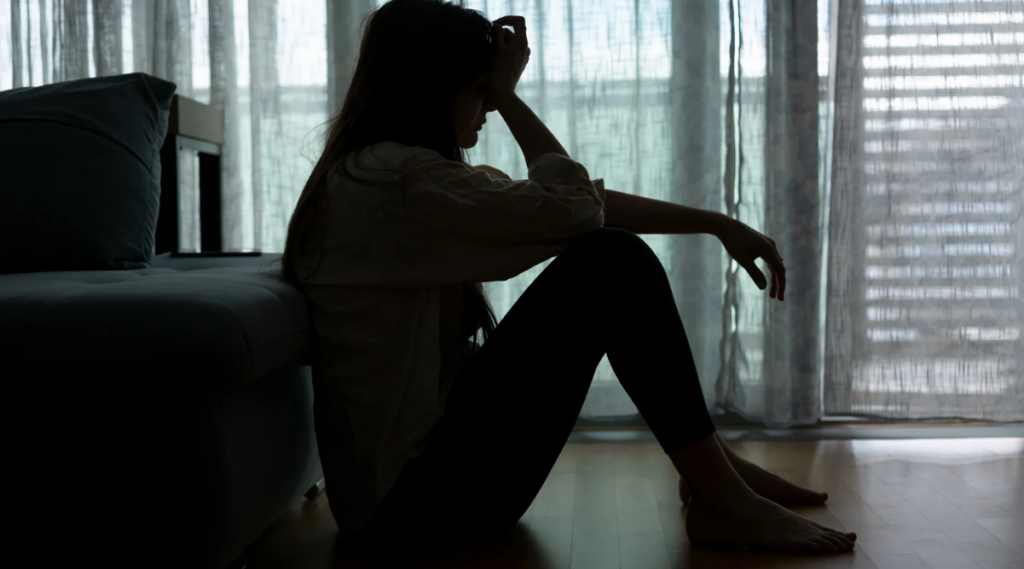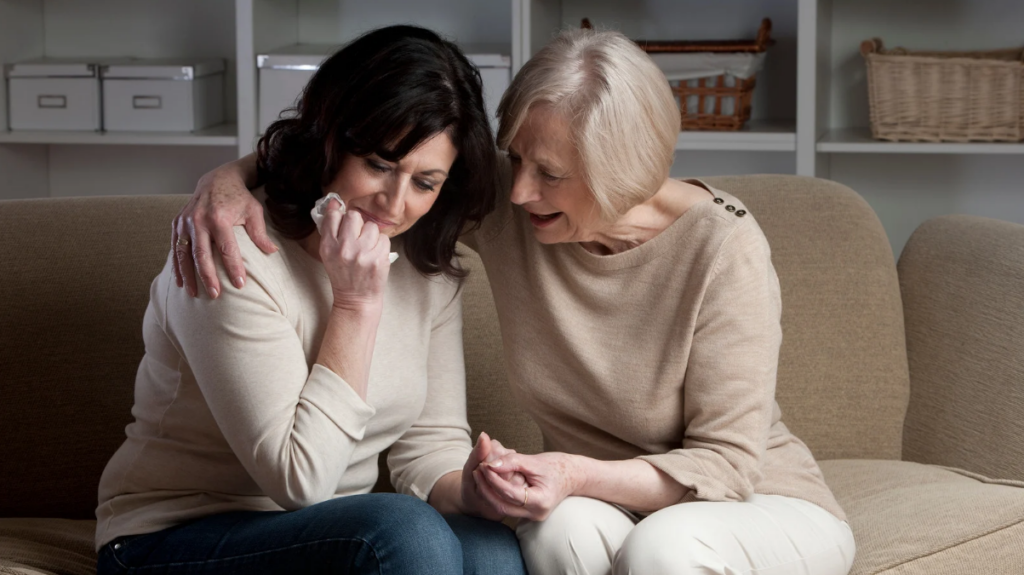
Grief changes everything. It reshapes your world, your emotions, and even the way you see yourself. Whether it’s the loss of a loved one, a relationship, a pet, a dream, or a sense of normalcy, grief is the emotional response that follows when something meaningful is gone. It can feel heavy, unpredictable, and at times, endless—but it’s also a natural part of love and human connection.
Understanding grief doesn’t make it hurt less, but it can make the experience less isolating. This compassionate guide will help you understand what grief really is, how it affects your mind and body, and the healthiest ways to navigate your journey toward healing.
What Is Grief and Loss?
Grief is more than sadness—it’s the emotional, cognitive, and physical process of adjusting to a world that has changed. When you lose something or someone deeply important, your body and mind react as they would to trauma.
You might cry uncontrollably one moment and feel strangely calm the next. You may lose interest in things that once brought you joy, or find yourself feeling guilty for moving forward at all. Grief can make time feel distorted—days blending together, memories feeling sharper or fuzzier than before.
But it’s important to know: grief is not a sign of weakness. It’s a reflection of your capacity to love, care, and attach deeply. Every tear, every ache, every moment of longing is evidence of how much something mattered to you.
The Common Sources of Grief
When people think of grief, they often think of death—but grief can stem from many types of loss. It’s the emotional pain that arises any time something of value or meaning is taken away.
Here are some common sources of grief:
- Death of a loved one: A partner, child, parent, friend, or pet.
- Relationship changes: Divorce, breakup, estrangement, or betrayal.
- Health or identity loss: A diagnosis, disability, or major life change that alters your sense of self.
- Career or financial loss: Losing a job, retirement, or the collapse of a long-held dream.
- Major transitions: Moving away, children leaving home, or losing your sense of belonging.
- Global or collective loss: Natural disasters, pandemics, or community tragedies.
If something mattered to you, it’s valid to grieve it. There is no “small” loss—only losses that changed you.
Types of Grief

Not all grief looks the same. Understanding the type of grief you’re experiencing can help you recognize what you need most in order to heal.
Normal Grief
This is the gradual emotional adjustment that follows a loss. You may experience waves of sadness, anger, and longing, but over time, the pain softens and life begins to find a new rhythm.
Anticipatory Grief
This occurs before a loss happens—such as when a loved one has a terminal illness. You begin grieving the inevitable change before it arrives.
Complicated or Prolonged Grief
For some, grief remains intense and debilitating for months or years. It can interfere with daily functioning, relationships, and self-care. This is often referred to as Prolonged Grief Disorder and may require professional treatment.
Disenfranchised Grief
This happens when a loss isn’t openly recognized or socially supported. Examples include losing an ex-partner, a pet, or experiencing miscarriage. The grief is real, but others may fail to acknowledge it.
Cumulative or Collective Grief
Sometimes grief builds over multiple losses or is shared by communities—like when global events cause widespread sadness or trauma.
Recognizing the form your grief takes doesn’t box you in—it validates your experience and helps you find the right kind of support.
The Stages of Grief: Not Linear, But a Journey
You’ve likely heard of the five stages of grief: denial, anger, bargaining, depression, and acceptance. These stages, introduced by psychiatrist Elisabeth Kübler-Ross, were never meant to be strict steps but a way to understand the shifting emotions of loss.
Grief isn’t linear—you might move from acceptance back to anger, or from sadness to numbness and back again. Healing means allowing yourself to move through these emotions without judgment.
The Five Stages in Brief
- Denial: A protective response that helps you absorb the shock of loss gradually.
- Anger: Frustration or resentment as the reality begins to sink in.
- Bargaining: Thoughts of “what if” or “if only” as you try to regain control.
- Depression: Deep sadness or withdrawal as the weight of the loss settles.
- Acceptance: Finding peace and adjusting to life while still honoring what was lost.
Everyone’s journey through these stages looks different—what matters most is giving yourself permission to feel.
How Grief Affects Your Mind and Body

Grief doesn’t only live in your heart—it affects your entire being. Understanding the mind-body connection helps you see why you may feel “off” even months after the loss.
Emotional and Mental Effects
- Confusion, forgetfulness, or difficulty concentrating.
- Feelings of guilt, regret, or anger toward yourself or others.
- Sudden waves of sadness or irritability.
- Numbness or detachment from the world.
- Intrusive memories or dreams about the loss.
Physical Effects
- Fatigue or chronic exhaustion.
- Changes in appetite or sleep patterns.
- Headaches, chest tightness, or digestive issues.
- Weakened immune system due to prolonged stress.
Grief activates your stress response system, flooding the body with cortisol and adrenaline. That’s why it can feel like your body is mourning as much as your heart.
Be gentle with yourself. You are not “lazy” or “broken.” You’re healing from an invisible wound.
Healthy Ways to Cope with Grief

There’s no quick fix for grief, but there are healthy ways to move through it—bit by bit, breath by breath. Healing doesn’t mean forgetting; it means learning to live with love in a new form.
1. Acknowledge Your Emotions
You don’t have to be strong all the time. Suppressing grief only delays healing. Allow yourself to cry, talk, write, or simply feel whatever comes. Emotional release is part of recovery.
2. Maintain Gentle Routines
When your world feels unstable, small routines—like having breakfast, walking outside, or making your bed—can help you feel grounded. Predictable structure brings comfort when emotions feel unpredictable.
3. Use Creative or Expressive Outlets
Art, music, journaling, or storytelling can give shape to emotions that words alone can’t hold. Many people find comfort in creating memory boxes, letters, or tributes to honor the person or thing they’ve lost.
4. Connect with Others
Grief can feel isolating, but healing happens in connection. Talk to loved ones who listen without judgment, join support groups, or reach out to faith or community networks. You are not meant to carry this alone.
5. Prioritize Self-Care
Your body is part of your healing journey. Eat nourishing foods, rest when needed, and move your body gently. Practices like mindfulness, yoga, or deep breathing can calm the nervous system and reduce emotional overwhelm.
6. Seek Professional Help
Therapists trained in grief counseling or trauma recovery can guide you through the complex layers of loss. Professional help doesn’t erase grief—it helps you process it safely.
7. Honor the Loss
Create rituals that give meaning to your grief. Light a candle, celebrate anniversaries, or write letters of remembrance. Turning grief into meaning transforms pain into connection and love into legacy.
Healing doesn’t follow a timeline—it follows compassion. Every day you choose to show up for yourself, you’re already healing.
When Grief Turns Into Depression or Anxiety

Grief and depression can look similar, but they aren’t the same. In grief, emotions fluctuate—you may feel intense sadness but still experience moments of hope or laughter. In depression, the darkness tends to feel constant and pervasive.
Signs Grief May Have Turned Into Depression or Anxiety
- Persistent sadness or emptiness lasting longer than six months.
- Loss of interest in daily activities or relationships.
- Extreme guilt or self-blame.
- Difficulty functioning at work or home.
- Thoughts of hopelessness, death, or self-harm.
- Physical symptoms such as panic attacks, heart palpitations, or shortness of breath.
If you notice these signs, please reach out to a mental health professional. You do not have to wait until things feel unbearable to seek help. Treatment through therapy or medication can bring relief and help you rediscover emotional balance.
Remember: needing help does not mean you’re failing—it means you’re human, and you’re choosing healing.
The Role of Therapy and Support Systems
Healing from grief is not about “moving on”—it’s about learning to move forward with the loss integrated into your life story. Therapy and support systems can make that process gentler and more sustainable.
Therapeutic Approaches That Help
- Grief Counseling: Provides a safe space to express emotions, find meaning, and process memories.
- Cognitive Behavioral Therapy (CBT): a talk therapy that helps reframe painful or guilt-based thoughts that intensify sorrow.
- Acceptance and Commitment Therapy (ACT): Encourages emotional flexibility and mindfulness in facing pain.
- Group Therapy: Connects you with others who understand, reducing feelings of isolation.
Support Systems Beyond Therapy
- Family and friends who listen and respect your pace.
- Faith leaders or spiritual communities.
- Local or online grief support groups.
- Companionship through volunteering or creative communities.
No matter where support comes from, the key is connection. Healing doesn’t happen in isolation—it happens in understanding, empathy, and shared humanity.
Supporting Someone Who’s Grieving

If you know someone who is grieving, your compassion can be a lifeline. You don’t need the perfect words—just presence.
Here’s how to help:
- Listen without fixing. Silence and empathy are more powerful than advice.
- Avoid minimizing phrases like “They’re in a better place” or “At least you had time to say goodbye.” These can unintentionally dismiss pain.
- Offer practical help. Bring meals, run errands, or simply sit with them. Small gestures matter.
- Check in regularly. Grief doesn’t end after the funeral. Continue offering support weeks or months later.
- Encourage professional help if the person seems stuck or deeply withdrawn.
Grief is less heavy when carried together. Sometimes, the best support you can offer is your quiet, consistent presence.
Final Thoughts: A Gentle Reminder for Your Healing Journey
Healing from grief isn’t about forgetting the person or thing you’ve lost—it’s about learning to carry the love forward.
Your grief is not something to “get over.” It’s something to move through—one breath, one memory, one heartbeat at a time. Every small act of self-care, every tear shed, and every moment you allow yourself to feel is part of that healing.
You don’t have to rush it. You don’t have to be okay right now. What matters is that you’re giving yourself permission to grieve—and in doing so, you’re giving yourself permission to heal.
If the pain ever feels too heavy, remember that you don’t have to face it alone. Compassionate, professional help can make a meaningful difference.
At EmpowHer Psychiatry and Wellness, we’re dedicated to walking with you through every stage of healing—providing gentle, evidence-based care that honors your story, your pace, and your emotional well-being. Whether you need therapy, medication management, or simply a safe space to talk, our team is here to help you rediscover balance, peace, and hope.
Contact us today to begin your healing journey with compassionate support that truly understands.

